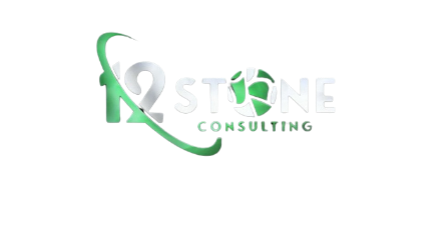
Corporate Business Structuring


Why Establishing a Formal Business Structure is Crucial for Entrepreneurs
Taking the step to formalize your business structure is essential for any new entrepreneur. Incorporating your business provides more than just legal protection—it sets the foundation for long-term success. Here are some key reasons why entrepreneurs choose to include:
Personal Liability Protection: By creating a separate legal entity, you shield your assets from business-related debts, liabilities, and lawsuits, safeguarding your financial future.
Tax Benefits: Certain business structures, such as S corporations, offer significant tax advantages that can save money and increase profitability.
Enhanced Credibility: A formal business structure adds professionalism and credibility, making your business more appealing to customers, investors, and lenders.
Choosing the right business structure is a crucial decision that can impact everything from your tax obligations to the way profits are distributed. Common structures include LLCs, corporations, and sole proprietorships. Each option offers distinct benefits, so it’s important to select the one that aligns with your goals.
Ready to make your business official? Let us help you choose the perfect structure and start your entrepreneurial journey with confidence!
Business Structure
SOLE PROPRIETORSHIP
A sole proprietorship is the simplest and most common business structure, especially for individuals looking to start small or freelance businesses. It offers several advantages, including minimal setup costs and straightforward management, making it an attractive option for entrepreneurs who want to get started quickly. As the owner, you maintain complete control over all business decisions, and any income generated flows directly to you, simplifying tax reporting. However, it’s important to note that this structure comes with significant risks: unlimited personal liability. This means that if your business incurs debts or faces legal issues, your personal assets—such as your home or savings—could be at risk to cover those liabilities. Is a Sole Proprietorship Right for You?
PARTNERSHIP
A partnership is a business structure jointly owned by two or more individuals. Whether you're collaborating with friends, family, or colleagues, a partnership allows you to combine resources, skills, and expertise to grow a business together. It also offers certain tax benefits, as profits pass directly to the partners, avoiding double taxation often associated with corporations. However, it’s crucial to understand the responsibilities that come with this arrangement. While partnerships offer some flexibility in management and operations, they also carry personal liability risks. Each partner is individually accountable for the business’s debts and obligations according to their ownership share. This means that if the business faces financial difficulties or legal claims, your personal assets could be used to cover the losses, even if the issue stems from your partner’s actions. Is a Partnership the Best Fit for Your Business? Partnerships can be an excellent choice for collaborative ventures, but it's important to carefully assess the legal and financial implications. You may also want to explore options like Limited Liability Partnerships (LLPs), which provide more protection from personal liability.
LIMITED LIABILITY COMPANY (LLC)
A Limited Liability Company (LLC) is a hybrid business structure that combines the best features of corporations and partnerships. One of the primary advantages of an LLC is its personal liability protection, similar to that of a corporation. This means that as an owner (or "member"), your personal assets, like your home or savings, are generally protected from any debts or legal claims against the business. At the same time, an LLC offers the tax benefits and flexibility of a partnership. Profits and losses can pass through to your personal income, avoiding the double taxation that corporations often face. Additionally, LLCs offer flexibility in management, allowing members to structure the business in a way that suits their needs, whether that’s through shared management or a designated managerial system. For entrepreneurs and small business owners looking to minimize personal risk while maintaining operational flexibility, an LLC can be an ideal choice. It offers a balanced approach, providing protection for personal assets without the complex regulatory requirements of a full corporation.
S CORPORATION
An S corporation (S-corp) is a distinct business structure in the United States that combines the benefits of a corporation with the tax advantages of a partnership or sole proprietorship. One of its key features is the ability to pass corporate income, losses, deductions, and credits directly to shareholders, avoiding the double taxation that typically applies to C corporations. Unlike traditional corporations, an S-corp allows its owners to report their share of the business’s profits and losses on their personal tax returns, providing significant tax savings. Additionally, S-corps offer limited liability protection, meaning that owners’ personal assets are shielded from business liabilities, much like in a traditional corporation. However, S-corps also come with certain restrictions. For instance, they are limited to 100 shareholders, and all shareholders must be U.S. citizens or residents. Despite these limitations, an S-corp can be a powerful structure for small and medium-sized businesses seeking both tax efficiency and legal protection.
C CORPORATION
A corporation is a business structure that exists as a separate legal entity from its owners. This separation provides one of its most significant advantages: limited personal liability. Shareholders are typically not personally responsible for the corporation's debts or legal obligations. In other words, their personal assets are protected, and their financial risk is generally limited to the amount they’ve invested in the company. However, with this protection comes increased complexity. Corporations are subject to more rigorous tax and regulatory requirements than other business structures like sole proprietorships or partnerships. For example, corporations face double taxation, where both the company's profits and the shareholders' dividends may be taxed. Additionally, corporations must adhere to strict regulations regarding governance, reporting, and compliance with federal and state laws. For larger businesses or those looking to raise significant capital through the sale of stock, the corporate structure offers the advantage of credibility and the ability to attract investors, but it requires careful attention to legal and financial obligations.
Related Services

Single Family Rehab Loans
Single Family Fix and/or Flip In today’s climate, many rehab loans are done with hard money.

Institutional Capital
We will provide the perfect commercial lending solution for your unique needs with our diverse program offerings, including SBA, conventional, FHA, and HUD loans.

Private Commercial Loans
Our business consortium has expanded to include a wide range of funding sources, encompassing individual, private, and institutional capital.

Church Loans
A line of credit is a versatile financial tool that can be used for both business and personal purposes.

Corporate Business Structuring
Establishing a formal business structure is a critical step for any new business owner.

Lines of Credit
A line of credit is a versatile financial tool that can be used for both business and personal purposes.

Business Loans
A line of credit is a versatile financial tool that can be used for both business and personal purposes.

Merchant Cash Advance
A merchant cash advance (MCA) can provide a quick injection of capital to help your business meet immediate needs and seize opportunities.
Establishing a formal business structure is a critical step for any new business owner. There are several reasons why businesses choose to incorporate, including:
- Personal liability protection: A separate business entity can help to protect your personal assets from business debts and lawsuits.
- Tax benefits: Certain business structures, such as S corporations, offer tax advantages that can save business owners money.
- Enhanced credibility: A formal business structure can make your business more credible and professional to potential customers, investors, and lenders.
Choosing the right business structure for your business is an important decision that can have a significant impact on your tax liability, paperwork requirements, and profit distribution. The most common business structures are:

Business Structures
Here are the five moth common models used in the marketplace today.
01.
SOLE PROPRIETORSHIP
A sole proprietorship is the simplest and most common business structure. It is also the most affordable and easiest to set up. However, sole proprietors have unlimited personal liability for their business debts and liabilities.
02.
PARTNERSHIP
A partnership represents a business jointly owned by two or more individuals. Partnerships provide a degree of personal liability protection; however, partners remain individually accountable for business debts and obligations based on their ownership share.
03.
LIMITED LIABILITY COMPANY (LLC)
An LLC is a hybrid business structure that offers the personal liability protection of a corporation with the tax benefits and flexibility of a partnership.
04.
S CORPORATION
An S corporation, often referred to as an S-corp, is a unique business structure recognized in the United States. It blends the attributes of a corporation with those of a partnership or sole proprietorship, offering distinct advantages for businesses.
05.
C CORPORATION
A corporation is a separate legal entity from its owners. This means that shareholders have limited personal liability for the corporation’s debts and liabilities. However, corporations are subject to more complex tax and regulatory requirements than other business structures.
